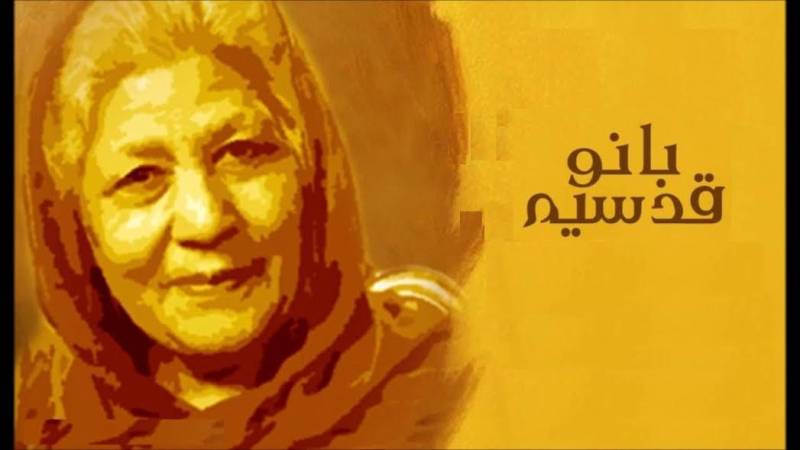It hasn’t been easy for us to accept the sad demise of our legendary writer Bano Qudsia, a mother and a friend to many, especially to the poor and the underprivileged. Residing in her home, famously called Dastaan Saraay, with her late husband and renowned writer Ashfaq Ahmed, she was known for welcoming everyone regardless of social status, cast, faith and creed. Even after he passed away, she continued welcoming anyone who sought her mentorship, or stopped by for alms. By doing so, she clearly set an example of peace, coexistence and social harmony. She was affectionately called Bano Aapa by not only her family and friends, but by the entire nation that looked up to her as a role model, a mentor, and a teacher.
A towering writer with an inspirational personality, Bano Qudsia’s writings has a profound impact on the readers. Generations on, readers find solace and spiritual guidance through her words. One of her signature topics was love, and Bano Aapa expressed and explained ‘love’ in a manner that moved even the coldest of hearts. Sara Babar, in a tribute she wrote for an online publication, wrote, “Her biggest quality was that she could love with all her heart.” Commenting on Bano Aapa’s interaction with her husband that Sara Babar noticed during a visit at Dastaan Saraay she wrote, “Bano Aapa came and sat next to him, and they exchanged a look I’ve never seen before. Without even touching each other, they were wrapped in each other’s’ existence.” Bano Aapa is among the fewest writers, or rather say people, who never stopped seeing rainbows even on dark rainy days. Through her words she always convinced others to dwell on hope despite whatever the circumstances were.
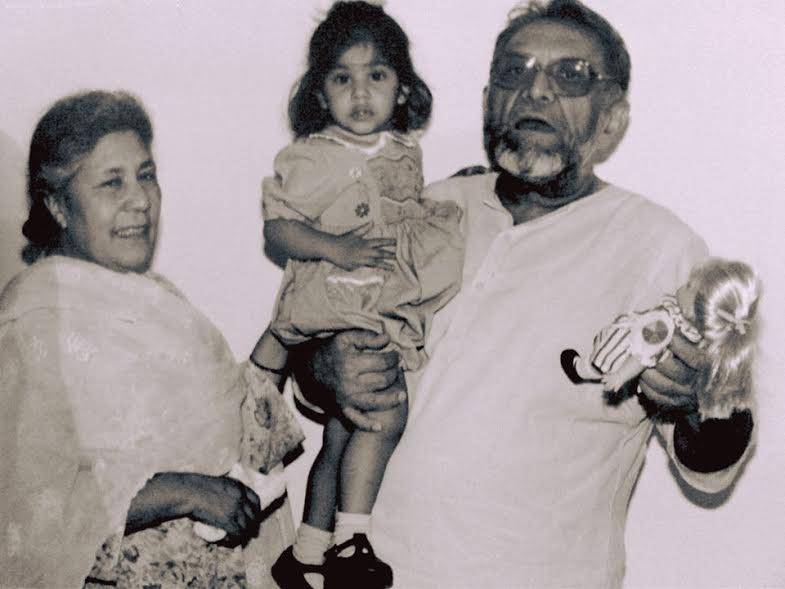
Fatima Khan of Aura Crafts with Bano Qudsia and Ashfaq Ahmed
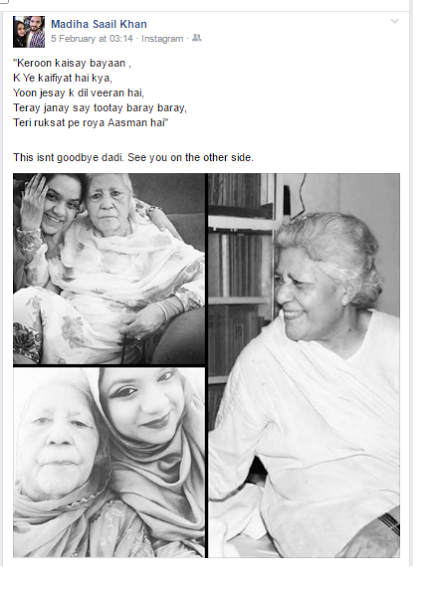
Bano Qudsia with her grandniece Madiha Saail
There hasn’t been any one who has not been touched by her kindness, or influenced by her writings. The influence was always a positive one. At the time of her death, the entire nation poured out by sharing their tributes. Those who knew her personally, especially her family and close friends, shared thoughts that were absolutely sentimental and heart touching.
Madiha Saail of Project Rich, grand-niece of Bano Qudsia from her husband Ashfaq Ahmed’s side, expressed her sentiments by saying, “We all grew up together in the arms of these great people. They were my support system while growing up.”
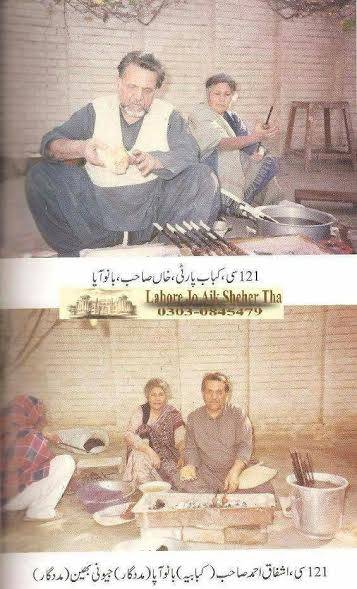
Bano Qudsia and Ashfaq Ahmed
Bano Aapa’s grand-daughter Fatima Khan of Aura Craft, shared her grief saying, “Honestly, she was just Dadi to me. Not Bano Qudsia. I lived with her for 11 years from the age of 1 to 12 and it was the best childhood anyone could ever ask for. She was the most humble and openhearted person I ever knew. Truly a rare gem and definitely the best Dadi anyone could ask for. She had the best wit and humour, but she practically gave up speaking when the love of her life passed away - my Dada. Now that she has left for her eternal abode, I am sure she is happy with him, and she's hopefully smiling like never before. I'll miss her so terribly but I am so lucky to have had her as a Dadi, kyun ke dadi ho tau aisi!”
Recipient of Sitara-e-Imtiaz, Bano Qudsia was well-acknowledged as a writer, novelist and playwright by the international literary fraternity. In fact, she was recognised trendsetter in television industry. Among her plays Aadhi Baat is one of her critically acclaimed plays that features everyday life of a retired headmaster and his day-to-day life problems. With iconic actor Qavi Khan playing the lead character, the play performed at the three-day selective event organized by the Pakistan National Council of the Arts in May 2010 at Islamabad. Her other famous playwrights include Tamasil, Hawa ke Naam, Seharay and Khaleej.
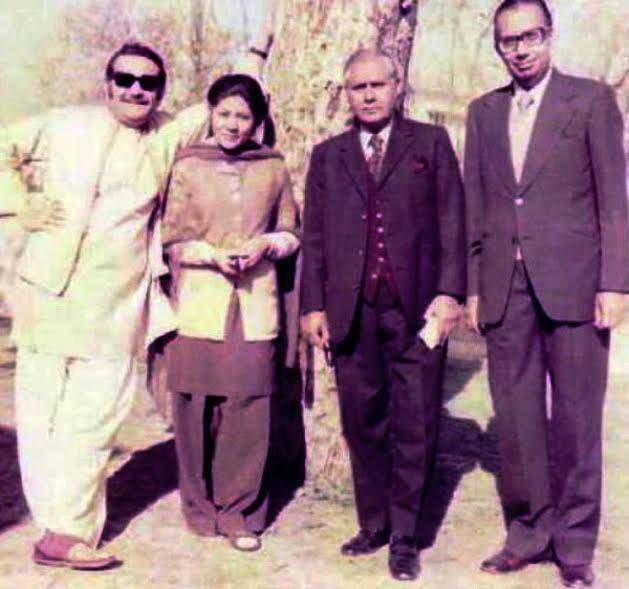
Younger days Bano Qudsia and Ashfaq Ahmed with Q U Shahab and Ibne Insha
Among her novels Raja Gidh (The King Buzzard) is acknowledged as a modern Urdu classic. Her other well-loved writings include Aatish-i-zer-i-paa, Aik Din, Amer Bail, Asay Pasay, Chahar Chaman, Chhotaa Sheher Baray Log, Footpath ki Ghaas, Haasil Ghaat and Hawa Kay Naam. In fact, she also completed her husband’s autobiography titled Baba Saheba which was left incomplete at the time of his death. The second part of the autobiography written by her was titled Rah-i-Rawaan. Bano Aapa never failed to intrigue and captivate her followers, and she created a brand new following of millenniums through her novel Haasil Ghaat that was published in 2005.
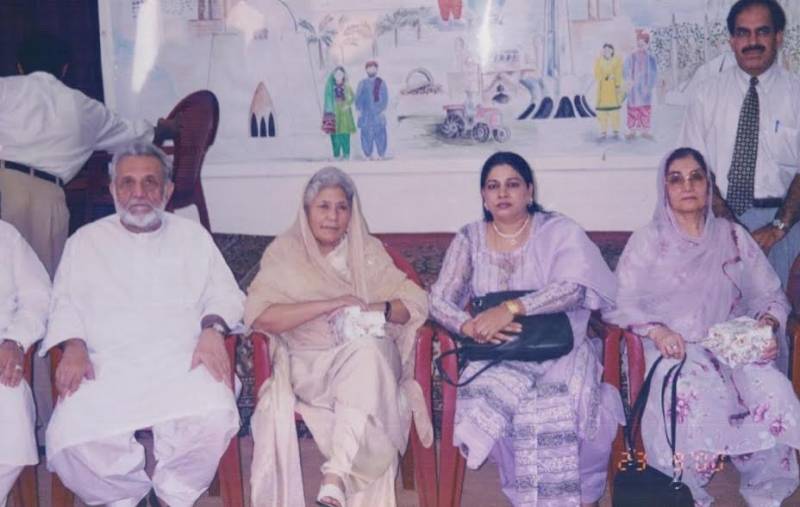
Recipient of multiple awards and recognitions, she was awarded the Hilal-i-Imtiaz by the government of Pakistan in 2010 for her services in literature. She was also awarded the Kamal-e-Fun Award, a lifetime achievement award, for the year 2010 by the Pakistan Academy of Letters (PAL). Last year in 2016, the Government College University Old Ravians Union (GCU-ORU) at its annual reunion conferred on her a lifetime achievement award. She was also given the lifetime achievement award by Pakistan Life Care Foundation (PLCF) last year. Bano Qudsia may have left us but she her words live on. Her contribution towards the prosperity of the nation will forever be saluted.
May the Almighty bless her soul. Amen.

